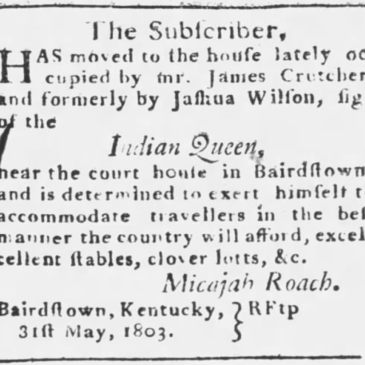New Information re: the Family of Mary Brooks (d. 1787) of Frederick County, Virginia – & New Wrinkle
“The Last Will and Testament of James Brooks Deceas’d was … Ordered to be for further proof” There’s a Murphy’s law in genealogical research that I’ve found proven true over and over – at least in my own research. Maybe your research hasn’t yet encountered this law. I hope that’s the case.







